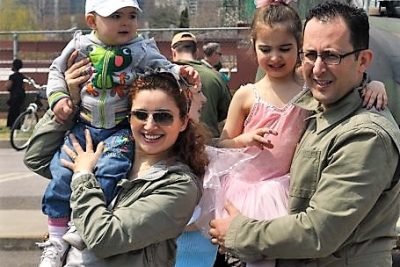A Brief Overview PAVE offers this article specifically to assist families navigating special education systems when they are new to our state, or if they have a child or youth who now needs special education The information in this article is available on a downloadable two-page handout. Families can get individualized help by filling out Read More
Students of all abilities have the right to a solid education to get ready for adult life. Students with Individualized Education Programs (IEPs) have a right to participate in IEP meetings to make sure the program is a good set-up for higher education, vocational training, work—whatever comes next after graduation. Schools are required to invite Read More
Brief Overview The National Education Association (NEA) recognizes that childhood experiences related to domestic abuse, trauma or divorce affect education. This article includes recommendations for teachers, family members or other adults who might advocate for a student who needs more help due to challenging life circumstances. Researchers agree that a trauma-sensitive approach to special education Read More
Disability Rights Washington (DRW) has published a video about school use of isolation and restraint. The video, which is posted to YouTube, was produced by DRW’s media program called Rooted in Rights. DRW is a private non-profit organization with a mission to advance the dignity, equality, and self-determination of people with disabilities. The agency is Read More
The Office of Superintendent of Public Instruction (OSPI) is the agency responsible for oversight of all public schools and non-public agencies in Washington State. In addition to supporting schools, OSPI provides resources and support directed toward students and families. OSPI upgraded its website (k12.wa.us) in July 2019. The home page provides news about current events, Read More
A Brief Overview Behavior specialists generally agree that difficult behaviors arise from unmet needs. How adults respond is critical if a child is going to learn new ways to communicate. Humans spend about 80 percent of their brain energy trying to belong. This can explain a lot when a child with a disability feels isolated Read More
A Brief Overview Not every meeting with the school ends in agreement. This article provides information about what parents can do when they disagree with decisions made by the school. When parents disagree with a school’s recommendation, they may need more information and time to organize ideas and priorities to prepare for a meeting. Read Read More
Parents and students who go to meetings prepared and organized are more likely to come away feeling heard and with a good action plan. This article can help you and your student prepare a one-page handout to share with the school or another service provider. Most important is to highlight the student as the most Read More
A Brief Overview The parents of a child named Endrew F argued that their son with a disability deserved more from his public school. They appealed their case all the way to the Supreme Court, and the ruling in their favor could mean more robust rights for all children with Individualized Education Programs (IEPs). The Read More
Youth Information for persons between the ages of 13 – 26. Behavior & Discipline
By Kelcey Schmitz, MSEd Center for Strong Schools University of Washington Tacoma We wouldn’t exclude, humiliate or send a child home for making an academic error. However, when it comes to misbehavior, a typical response has been to punish or wait until the behavior escalates or occurs at a high rate or intensity before intervening. Read More
When the behavior of a student with an IEP gets in the way of his or her learning or that of others, the IEP team must develop behavior goals or a behavior plan. Behavior plans are not punitive. They are positive plans describing how the school will support positive behavior through instruction or changing the Read More

